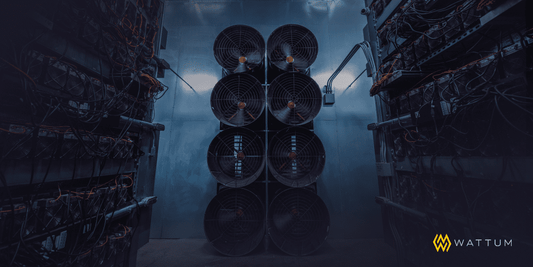The U.S. government has recently taken steps that could result in a negative impact on cryptocurrency in the country. Under President Biden, the government has included provisions in their newest infrastructure bill that would require crypto “brokers” to report their transactions to the IRS.
A Fundamental Misunderstanding of the Crypto Space
In the original proposition of the infrastructure bill, the definition of brokers was defined so broadly that it could include “almost anyone in the crypto ecosystem (miners, validators, smart contracts, open source developers, etc.),” further defining brokers as “any person who (for consideration) is responsible for regularly providing any service effectuating transfers of digital assets on behalf of another person.” While reporting obligations are appropriate in nature for crypto exchanges and those who frequently trade large values of Bitcoin, the proposal did not consider the circumstances of crypto miners and those operating DeFi applications. Another concern regarding the broad definition is that it would target all participants in Bitcoin mining, from miners themselves to developers, stakers, and others who do not have customers and therefore would not have access to the information needed to comply. If passed, this bill could very likely put a plug in further investments in the U.S. crypto mining market.
Several influential figures in finance and crypto have spoken out against the bill, including billionaire Mark Cuban. He compared the proposed law to “stopping e-commerce in 1995 because people were afraid of credit card fraud,” and warned that it may shut off the “growth engine” of the decentralized finance sector. Coinbase CEO Brian Armstrong also indicated his concern for the bill, not in regard to reporting requirements for large exchanges such as Coinbase, but rather to DeFi applications such as smart contracts. Because a smart contract is a software application on a blockchain that anyone can use, information will need to be collected by law on transactions that will never generate any real tax revenue.
An amendment was filed by 3 senators to redefine “brokers” as anyone who is buying, selling, or trading digital assets, but it was quickly blocked as the administration believed it would put a dent in the original $28 billion expected to be raised over 10 years. Although the amendment ultimately did not come to pass, there is a silver lining, as awareness surrounding crypto technology continues to grow among lawmakers. While the new bill could potentially pose a threat to Bitcoin players, the future looks hopeful as crypto becomes a more common topic among decision makers in the country.
DeFi could see a Major Step Back in Progression with the Build America Act of 2021
For the past several years, the decentralized finance industry has been in a perpetual state of flux. After being driven by a spark of innovation, it saw the beginning of consumer adoption and was further accelerated into the mainstream via adoption by the private sphere. There are a myriad of potential use cases for crypto applications that could be realized in the near future, however, to do so it must move through the final stage of adoption: acceptance in systems of governance.
Government acceptance and regulation must be carefully addressed in order to promote the good actors and limit the possibilities for bad actors, while still allowing breathing room for innovation to grow. Only time will tell what actions the House will take regarding the infrastructure bill passed down from the Senate, but a full crackdown on crypto could be disastrous as innovation will be forced away from the United States. However, as influential political figures and thought leaders lobby for a positive growth environment for miners and other DeFi innovators, it remains possible that this bill will undergo significant changes before passing. In the coming weeks, all eyes will be on the House and Speaker Pelosi. With more educated lawmakers pushing for regulation that will limit or simplify tax-reporting requirements, especially for miners, American miners should be hopeful for what the completed bill will look like amongst the ongoing uncertainty of mining in the U.S. The journey of the bill passing to law remains long.
Mining Update & P/E Ratios
With BTC climbing back to the $50,000 point and mining equipment prices still low following the China clampdown, it’s still an optimal time to purchase miners. Mining difficulty, at the end of August 2021, was expected to remain at 15.6 T for the next few weeks, down 40% from where it was in May when Bitcoin was last at today’s prices; this number is now up to 18.4 T. The P/E ratio of the Antminer S19 Pro has dropped from 1.91, to around 0.88, at the time of writing.
Price-Earnings (P/E) ratio compares the purchase price of equipment with its annualized earnings. A P/E ratio less than 1.0 means that the yearly earnings are higher than the initial cost of the rig, and it also tells us how long it will take to recoup the initial investment. For example, a P/E ratio of 0.88 for the S19 Pro means that it will take 10.5 months (0.88 years) of operation to recoup the investment. (This assumes constant operation at an energy cost of $0.05/kWh.)
As we await clarity regarding Bitcoin and DeFi’s future in the U.S., adoption of the technology continues to grow worldwide and mining remains highly profitable. Fortunately, Wattum Management has operations in place across the world and can ensure a smooth mining setup regardless of the outcome of the Build America Act of 2021. Contact Wattum today to find out how we can assist you with your mining aspirations.



